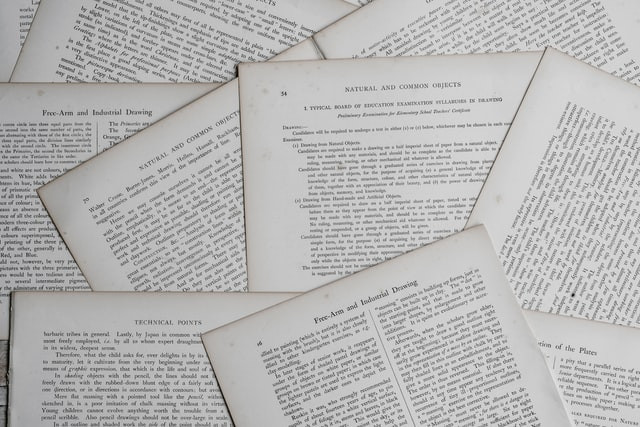Expert Tips to Excel at Assignment Writing

Structuring Your HND Assignment for Maximum Clarity
March 29, 2025
Top 5 Skills International Students Should Develop for Success
June 28, 2025Tasks are something beyond errands; they’re valuable open doors for understudies to connect profoundly with course material, exhibit their comprehension, and grandstand their abilities. Nonetheless, making tasks that are both connecting with and scholastically thorough can be trying for teachers. In HND assignment writing service in London, we’ll investigate tips from composing specialists on the most proficient method to create convincing tasks that motivate understudies and cultivate significant growth opportunities.
Obviously Characterize Goals and Assumptions
Prior to planning a task, it’s fundamental to characterize its targets and assumptions obviously. What explicit realizing results do you believe that understudies should accomplish through this task? What rules will you use to survey their exhibition? Obviously articulating these goals and assumptions assists understudies with understanding the reason for the task and what is generally anticipated of them, making way for progress.
Follow the Rubric
Every task accompanies a reviewing rubric. This is a bunch of decides that understudies should follow while setting up their tasks. One normal error understudies make is disregarding the rubric, which makes them miss significant pieces of the point. Understudies ought to zero in on the rubric and investigate the subject appropriately to guarantee higher scores. Prior to beginning a task, it’s critical to completely audit the rubric to comprehend which parts of the point to feature. It’s additionally vital to adhere to the particular word count for each segment.
Center around Spelling and Sentence structure
Spelling and language ought to be right. Great spelling and punctuation are straightforwardly connected to great task scores. Assignment Writing in clear and familiar English is additionally important to show your composing abilities.
Spelling and sentence structure botches in tasks show that the understudy isn’t significant. Along these lines, zeroing in on this aspect is significant. In the wake of completing a composing project, cautiously edit it, track down missteps, and fix them. This will work on the familiarity of your task.
Utilize Different References as Data Sources
You ought to accumulate information from various sources, for example, books, research studies, diary articles, peer-explored articles, government reports, contextual analyses, and company yearly reports. Try not to depend on only one source since this can prompt literary theft. All things being equal, utilize various sources to assemble information, compose it in a way that would sound natural to you, and remember to give references to each significant snippet of data or idea.
Now and again, understudies are given complex points that expect top to bottom exploration. Finishing these tasks calls for sufficient investment. One normal issue understudies face is time imperatives, which keep them from doing careful examination. In such cases, it’s useful to contact an expert task composing administration for help. This can likewise assist you with figuring out how to lead research and complete tasks on time.
Further develop Organizing and Design
Wrong task configuration and construction are likewise significant explanations behind low scores. Every task has explicit necessities for construction and designing, which a few understudies frequently disregard. In the first place, audit the prerequisites for design and organizing, then, at that point, foster a diagram. Doing this prior to beginning to write is significant. Right designing and show are urgent in light of the fact that tasks incorporate imprints for show.
Offer Decision and Independence
Engage understudies by offering decision and independence in task themes, arrangements, or approaches. Permit understudies to choose subjects that line up with their inclinations or profession objectives, empowering them to take responsibility for learning and put resources into the task all the more profoundly. Give choices to various kinds of tasks, like expositions, introductions, or activities, to oblige assorted learning styles and inclinations. Decision and independence cultivate inspiration and commitment, prompting better work.
Consolidate Certifiable Significance
Make tasks more significant and important by interfacing them to true settings or applications. Consolidate contextual analyses, reproductions, or issue based situations that reflect credible difficulties understudies might experience in their future vocations. Urge understudies to apply course ideas and hypotheses to genuine circumstances, cultivating further comprehension and adaptable abilities. By establishing tasks in certifiable pertinence, understudies see the viable worth of their learning and are roused to succeed.
Give Convenient Input and Backing
Powerful criticism is fundamental for understudy learning and improvement. Give ideal and valuable input on tasks, featuring qualities and regions for development. Offer direction and backing all through the task interaction, resolving different kinds of feedback as they emerge. Urge understudies to look for input from peers or use composing focuses or coaching administrations for extra help. Opportune input and backing foster a culture of ceaseless improvement and engage understudies to accomplish their scholarly objectives.
End
All in all, excelling at task composing is significant for scholastic achievement. By following these top tips, you can improve your task sythesis abilities. This will achieve your scholarly objectives with certainty. Keep in mind, careful discipline brings about promising results, so continue improving your composing abilities.
Making convincing tasks is a cooperative exertion that requires insightful preparation, clear correspondence, and an emphasis on understudy commitment and learning results. By following the tips from composing specialists framed in this article, teachers can plan tasks that move and propel understudies, encourage decisive reasoning and imagination, and advance significant growth opportunities. With all around created tasks, teachers can engage understudies to succeed scholastically and set them up for future outcome in their scholar and expert undertakings.




